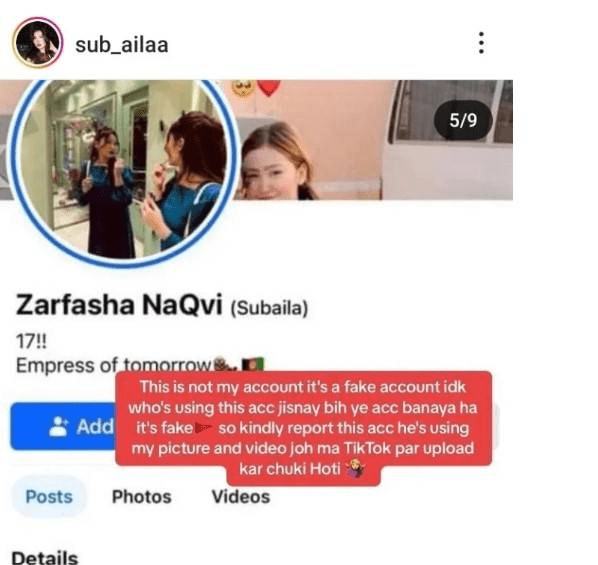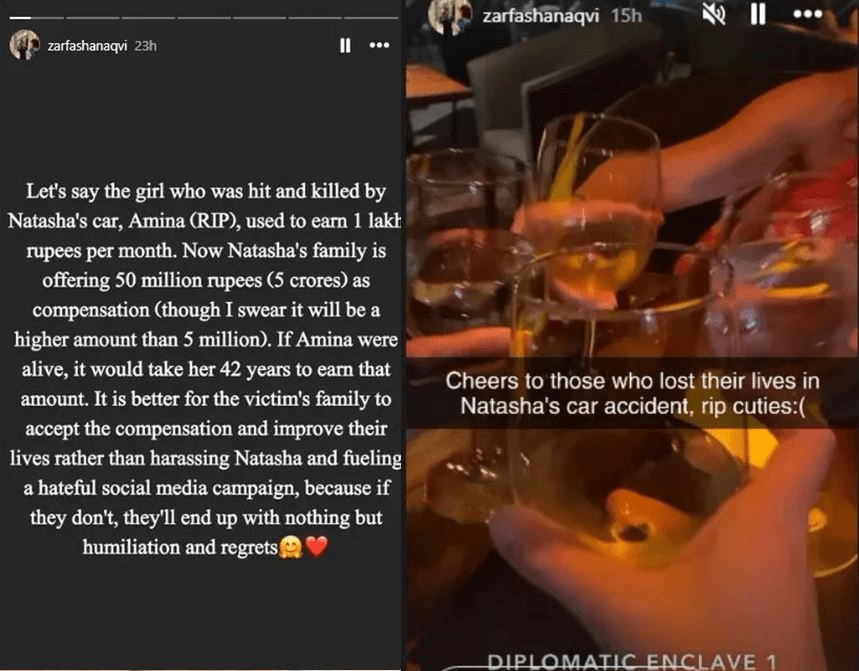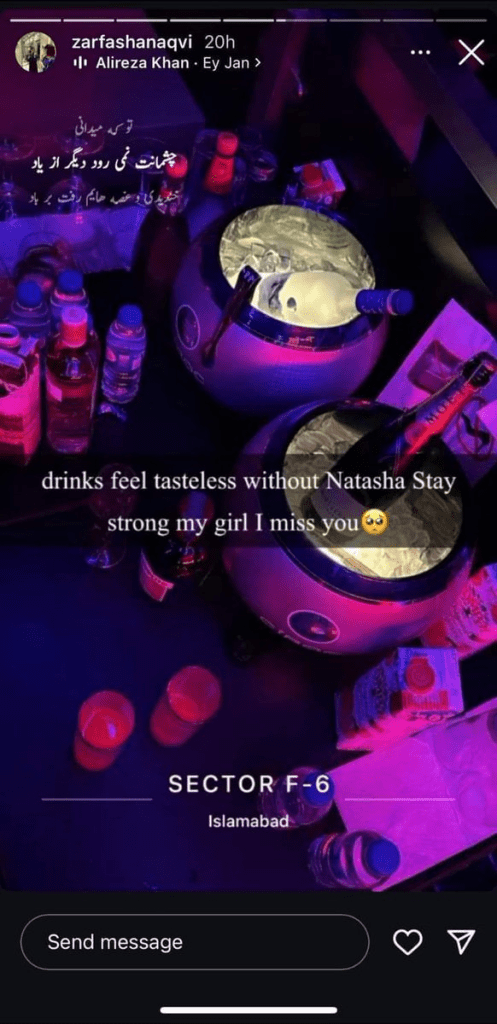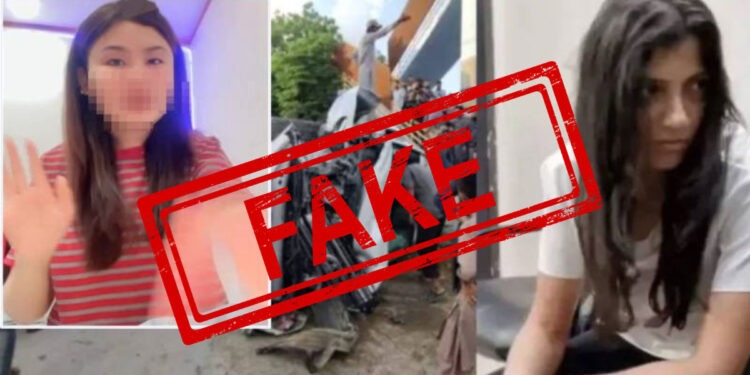Zarfasha Naqvi has recently emerged as a significant figure in the ongoing controversy surrounding Natasha Danish Iqbal, the prime accused in the tragic Karsaz Road accident in Karachi. This accident, which resulted in the loss of two lives, has drawn significant public and media attention, with Naqvi’s actions becoming a focal point of the debate.
Support for Natasha Danish Iqbal
Despite the gravity of the accident, Zarfasha Naqvi has publicly expressed support for Natasha Danish Iqbal. This stance has incited considerable outrage and debate, particularly because it comes in the wake of a tragic event that has deeply affected the victims’ families and their supporters. Naqvi’s vocal endorsement of Iqbal, combined with her public comments, has sparked significant controversy.
Public Reaction and Social Media Presence
Naqvi’s support for Iqbal has not been well-received, with her Instagram account becoming a battleground for criticism. Her account, which showcases a lavish lifestyle, has drawn ire from the public, especially as she has been accused of mocking the victims and their supporters. This behavior has exacerbated the situation, drawing widespread condemnation and further inflaming public sentiment.



Identity and Misinformation
Adding to the complexity of the situation, Zarfasha Naqvi’s true identity remains shrouded in mystery. Investigations have revealed that the Instagram account attributed to her is not genuine; it reportedly features photos of a girl named Sub Ailaa, who has no connection to the controversy. This revelation underscores the dangers of misinformation and online anonymity, raising questions about the authenticity and motivations of those involved.
Ongoing Impact and Public Interest
As the Karsaz Road accident case continues to unfold, Zarfasha Naqvi’s controversial support for Natasha Danish Iqbal remains a topic of intense public interest. The situation highlights broader issues related to online behavior, misinformation, and the impact of public figures in high-profile cases. The scrutiny surrounding Naqvi reflects ongoing concerns about accountability and the influence of social media in shaping public perception.








